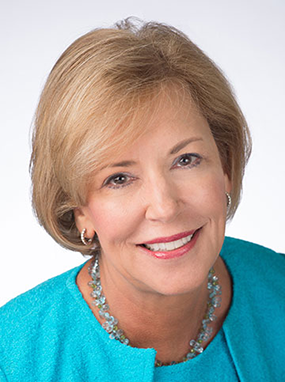The new central office plays a key role in ensuring effective professional learning
The new central office plays a key role in ensuring effective professional learning
By Stephanie Hirsh
Categories: UncategorizedJune 2010
At one time in my career, I became the first director of staff development in my school district. Before I filled that role, planning inservice was the responsibility of the assistant superintendent for instruction. I remember feeling honored when, as a second-year teacher, I was invited to serve on the committee that planned the two days set aside on the calendar for teacher inservice. We began our work by brainstorming topics we believed our colleagues would be interested in exploring. From there, we determined a slate of workshops that we would plan and host.
I remember my colleagues asking the assistant superintendent to consider alternatives. The assistant superintendent dismissed each suggestion. Now, more and more central office administrators recognize the value of alternate learning approaches and the expertise that resides within schools as well as outside. NSDC’s purpose calls for every educator learning every day. A primary responsibility of central office has shifted from planning inservice days to ensuring that sustained, intensive, and effective professional learning is available to every educator.
To achieve this purpose, central office staff members must attend to the structures, the processes, and the content of educator professional learning. Continuous effective professional development begins with leaders’ commitment and strategic allocation of resources, including regularly scheduled time and support for schoolwide and team-based professional learning. Today’s central office arranges human resources so that teachers have access to the jobembedded support they need to translate new learning into the classroom. And central office personnel have the responsibility to ensure that teachers aren’t the only schoolbased learners. School leaders must also engage in professional learning that supports their roles as instructional leader and chief staff developer.
NSDC’s new definition for effective professional development indicates every educator participates as a member of at least one learning team that engages in an ongoing cycle of improvement to increase student learning. The success of this process depends on the quality of data the team uses to make decisions about student and teacher learning needs. Central office administrators assume responsibility for making meaningful data available to the principal, faculty, learning teams, and individuals. In addition, the new central office offers guidance and research to assist the learning team in choosing improvement strategies. New and improved central office administrators also provide support to educators in developing classroom assessments to monitor impact. Finally, central office administrators provide access to technical assistance outside the school when the expertise cannot be found among the peers.
The cycle of improvement only produces higher levels of performance by students and staff if learning is targeted on the appropriate outcomes. Central office ensures that the curriculum, instructional resources, and district assessments are aligned to state and local standards. They determine the appropriate application of teaching, leadership, and professional development standards. They manage expectations for new teachers. They determine when it is appropriate to allocate resources to individual needs as opposed to a team or schoolwide need.
As expectations continue to rise for students and teachers, the most valuable central office recognizes new responsibilities and opportunities. In my view, the central office that partners with schools to achieve the NSDC purpose is the central office that will soon celebrate the contribution it makes to higher levels of student performance in all schools.

Stephanie Hirsh retired in June 2019 after 31 years with Learning Forward, an international association of more than 13,000 educators committed to increasing student achievement through effective professional learning. Hirsh led the organization as its executive director for the last 13 years where she presented, published, and consulted on Learning Forward’s behalf across North America.
Categories: Uncategorized
Recent Issues
EVALUATING PROFESSIONAL LEARNING
February 2024
How do you know your professional learning is working? This issue digs...
TAKING THE NEXT STEP
December 2023
Professional learning can open up new roles and challenges and help...
REACHING ALL LEARNERS
October 2023
Both special education and general education teachers need support to help...
THE TIME DILEMMA
August 2023
Prioritizing professional learning time is an investment in educators and...








